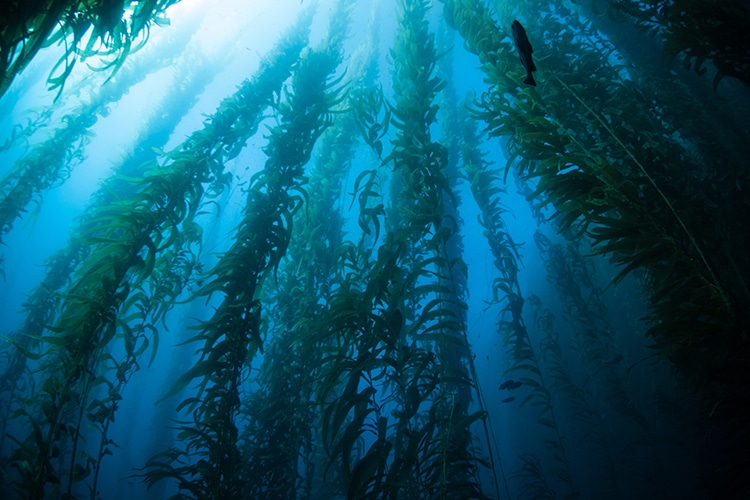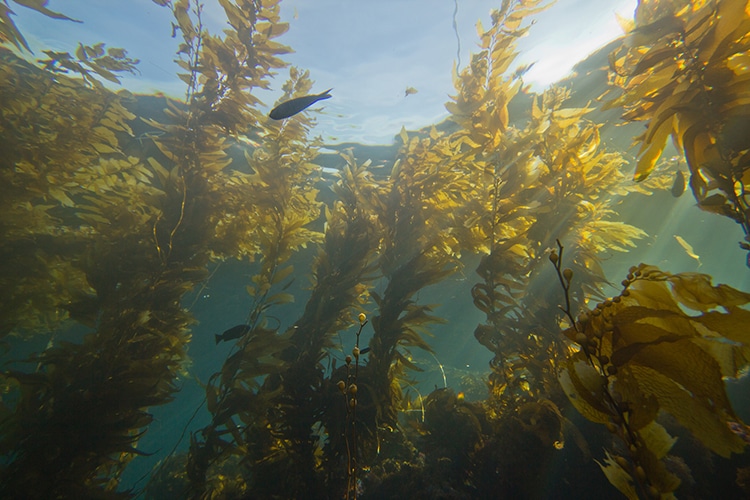Kelp Forests Absorb 5 Million Tons of Carbon Dioxide Every Year

Photo: EAD72/Depositphotos
What's the value of seaweed? A new study published in Nature Communications suggest the value of the sea plant goes far beyond sushi. Researchers valued kelp forests, forests of large brown algae, at about $465 billion and $562 billion per year worldwide due to their positive impact on commercial fisheries and the environment. This flora also absorbs 4.5 million tonnes (4.96 tons) of carbon dioxide annually, rather like forests on land.
Aaron Eger at the University of New South Wales in Australia set out with his fellow researchers to quantify the benefits of seaweed. The team focused on six kinds of kelp which grow in dense thickets known as forests. About 1,500 species of fish and marine life live in these forests. This sea life supports commercial fisheries and food supplies. They added this “value” to the other benefits of kelp. Kelp absorbs carbon dioxide (largely responsible for our warming planet) as well as nitrogen and phosphorus from agricultural run off. This helps preserve the quality of our waters.
Testing seaweed gave researchers insight into how much the plants absorb. “Much like a plant on land, [kelp forests] are taking up nutrients, they’re taking up carbon dioxide, and using light to fuel their growth,” Eger said. In total, these kelp forests provide two main benefits. They support $465 to $562 billion per year of the global economy. They also sink almost five million tons of carbon dioxide. Although the current paper does not focus on it, seaweed is also a promising climate-resistant food source with the power to uplift female cultivators. This wonder plant is part of a climate-friendly future in multiple ways.
Kelp forests around the world have proved to be tremendous carbon sinks, as well as a lucrative support for fishing expansion and food supplies.

A giant kelp (Macrocystis pyrifera) forest in Southern California. (Photo: TIMBALCOMB/Depositphotos)
h/t: [New Scientist]
Related Articles:
UN Climate Change Report Calls for Immediate Action to Avoid Climate Catastrophe
Volunteers Gather in India to Plant 250 Million Trees to Combat Climate Change
Carrier Pigeons Wearing Backpacks Help Scientists Collect Climate Data
Seaweed Farming Offers a Solution To Fighting the Climate Crisis and World Hunger
READ: Kelp Forests Absorb 5 Million Tons of Carbon Dioxide Every Year

0 Commentaires